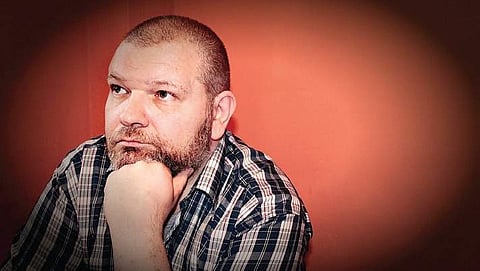

BENGALURU: The expression of revolt varies in different countries. Drug taking is a form of that revolt. The revolt of the black and white in America, anti-war, pro-war, the explosion of population right throughout the world, the undeveloped countries. And has revolt any meaning at all? And to act is necessary, to do something. Either one does, or responds adequately to the fragment of a particular breakdown, taking the political issue and throwing oneself into it, or the economic issue, or the social work, or shall one withdraw completely into one’s own isolation, retire into a world of meditation, which is what is happening also. Surely all these are an indication, aren’t they, of approaching the problem fragmentarily? This is a human problem - as a whole, not of a particular group or a particular people, or of a particular culture.
Can one respond to this, totally, as a whole phenomenon, not a particular kind of phenomena? And is it possible to respond to this with our whole mind and heart, so that we act not in fragments but as a whole being? And I feel that’s the only possible response and the only possible action, confronted as we are, with this phenomenon of degeneration. After all, degeneration takes place when one knows what to do, and not to do it. And do we know what to do? Not what to do with regard to a particular fragment, but what to do with regard to the whole structure and nature of our society and of ourselves? I don’t know if you have thought about this, or if you are interested in this kind of approach. Because the house is burning - not your house or my house, but the house that man has built for millennia, where there is so much sorrow, illusion, where there is no faith in anything - quite rightly.
How is one to respond to all this? Shall one invent a new ideal, a principle, a directive? Because the old ideals, the old directives, the old morality has completely failed. So in reaction to that, one can have or intellectually conjure up a marvellous ideal, a new utopia, and work for that. And is that the answer? An ideal? A new principle? When the old ideals and old principles have completely failed? And mustn’t all ideals always fail? Because they’re not real; they’re just the opposite of what actually is. So can one discard all ideals? And if you do, can one live without a directive? Ideals at least give a certain directive, as one can lay the course of one’s life along that. But the ideals, as in the past, have really no meaning whatsoever, when one examines it very closely. So if you have no directive - and apparently human beings at the present state have no directive - they are driven by various issues. And being driven by propaganda, by certain structure of a particular society and culture in a certain direction is not directive at all; it’s just acting out of confusion. This is really a very serious question.